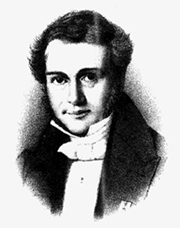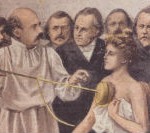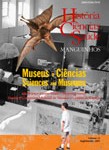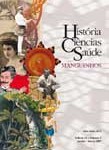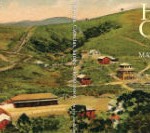June 2015
By Bruno Romero Ferreira Miranda*

Thumbnail of the map “Over-Winningh van de Stadt Cotchin op de Kust van Malabaer” by Johann Nieuhoff
The article Sick and unable to march:” life and death in the army of the Dutch West India Company in the Northeast of Brazil, 1630-1654, published in História, Ciências e Saúde – Manguinhos (vol.22, n.2, Apr./Jun. 2015) is an in-depth piece of research by Bruno Romero Ferreira Miranda, professor at the Rural Federal University of Pernambuco.
The article describes how when the fleet of the West Indian Company arrived at the coast of Pernambuco in January 1630, officials from the invading army expected to quickly capture the Portuguese positions without meeting much resistance. “Initially at least, this held true”, explains the author. “The city of Olinda which was the capital of the Pernambuco captaincy fell after barely a day’s fighting and its port, Recife, was overcome in just a few days”.
However, once they partially defeated their Portuguese enemy, the Company’s commanders had to deal with a more deadly and persistent opponent, namely the innumerous diseases which affected the army and led to a high percentage of losses ever since the invasion and conquest of the territory, between 1630 and 1637, until the end of the Dutch occupation of Brazil in 1654.
Bruno Romero Ferreira Miranda carried out the research in the Netherlands between 2007 and 2011, and published the results in the book ‘Gente de Guerra: origem, cotidiano e resistência dos soldados do exército da Companhia das Índias Ocidentais no Brasil (1630-1654)’ published by Edufpe in 2014 (‘People of War: the origins, daily lives and resistance of soldiers from the West Indian Company in Brazil, 1630-1654).
As well as advancing research on the Dutch presence in Brazil, the author showed how various illnesses impacted upon soldiers’ lives and hindered actions of the Company’s army. He also sought to gather information about the principle diseases that spread amongst the troops and their causes.
For the author, the risky service of war in Brazil seemed, in certain moments, to have been less harmful to the military of the West Indian company than the various maladies that plagued them during the years of occupation.
*Bruno Romero Ferreira Miranda is History professor at the Rural Federal University of Pernambuco.
Read the full article on HCS-Manguinhos:
Miranda, Bruno Romero Ferreira. Sick and unable to march:” life and death in the army of the Dutch West India Company in the Northeast of Brazil, 1630-1654. Hist. cienc. saude-Manguinhos [online]. vol.22, n.2, Apr./Jun.2015
See the full summary of HCS-Manguinhos latest edition (vol.22, n.2, Apr./Jun. 2015).
How to cite this post [ISO 690/2010]:
MIRANDA, Bruno Romero Ferreira. “Sick and unable to march:” life and death in the army of the Dutch West India Company in the Northeast of Brazil, 1630-1654. Hist. cienc. saude-Manguinhos [online]. 2015, vol.22, n.2 [viewed DD MM YYYY], pp. 337-353 . Available from: <http://www.scielo.br/scielo.php?script=sci_arttext&pid=S0104-59702015000200003&lng=en&nrm=iso&tlng=en> ISSN 1678-4758.





